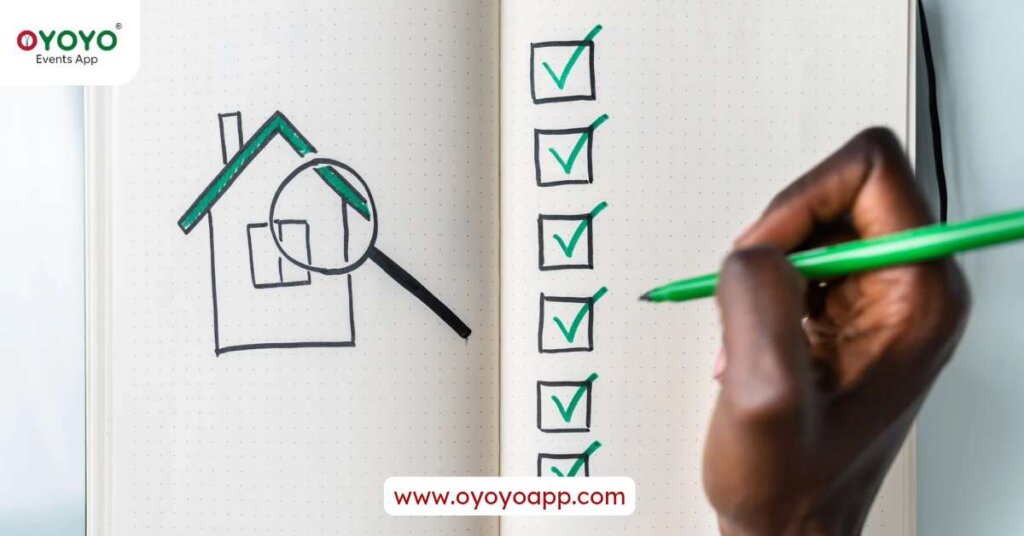The morning sun is kind, your alarm actually did its job, and today’s the big day. But somehow, in the flurry of last-minute checks and a half-eaten breakfast, the little things slip. No charger. A missed ride. And that shirt you thought was spotless? Not quite. It’s in these moments we realise just how important it is to properly prepare for a physical event—not just mentally, but practically too.
Many of us have been there. The chaos that follows poor preparation can easily take the shine off what should be a fulfilling experience. Whether you’re attending a networking session, trade fair, workshop, or business conference, knowing how to prepare for a physical event can be the difference between a stressful day and a successful one.
To help you avoid last-minute panic, we’ve compiled 7 practical steps to ensure you’re ready to show up confident, calm, and fully prepared.
1. Know the Event Details Inside-Out

Before anything else, get familiar with every detail related to the event. It might sound obvious, but you’d be surprised how many people mix up start times or turn up at the wrong location.
Check the venue, timing, dress code, agenda, and registration instructions. Look into who’s attending or speaking, and what’s expected of participants. Is there a theme? Are you meant to bring samples, portfolios, or printed materials?
Being informed not only helps you prepare for a physical event with intention—it also helps you engage better on the day.
2. Sort Out Your Travel and Timing Early
One of the simplest ways to reduce event-day stress is to sort your movement plans ahead of time. Decide how you’ll get there—public transport, driving, ride-hailing? Then map out your route and estimate how long the journey will take.
Give yourself enough breathing room by planning to arrive 30 minutes early. That buffer gives you time to settle in, freshen up, and even connect with fellow attendees before things begin.
Running late not only throws you off balance but could also leave a negative first impression. Early is professional.
3. Organise What to Wear and Carry

What you wear affects how you feel. Dress appropriately for the nature of the event, but also make sure you’re comfortable. If you’ll be standing for long periods, skip the brand-new shoes.
The night before, pack a small bag with event essentials. Here’s a quick checklist:
- Phone charger or power bank
- Notebook and pen
- Business cards (if relevant)
- Breath mints or light snacks
- Identification or entry pass
Having your items ready ahead of time is a smart way to prepare for a physical event without added pressure in the morning.
4. Set Clear Goals for Attending
Why are you going to this event? What do you hope to leave with?
Before attending, set clear but simple goals. You might aim to connect with five new people, learn about a specific topic, or get visibility for your business.
When your goals are clear, your attention stays focused. You’ll be more intentional in conversations, quicker to spot opportunities, and better able to measure the event’s value afterwards.
5. Brush Up on Your Elevator Pitch
Whether you’re networking or introducing yourself in a session, a brief and clear elevator pitch will always come in handy.
Think of it as a friendly, natural way to say who you are, what you do, and why you’re attending. No need for rehearsed lines—just be honest and enthusiastic. Practice enough to feel comfortable, not robotic.
It’s a small step, but one that can help you prepare for a physical event with confidence and ease.
6. Take Care of Your Body and Mind Before the Day

Events can be long, busy, and demanding—especially if you’re expected to move around, listen actively, or speak up. Your body and mind need to be in good shape.
Get quality sleep the night before. Eat something nourishing. Hydrate well and pack water if you can. Even five minutes of stretching or breathing exercises in the morning can boost your focus and reduce nerves.
Taking care of yourself physically and mentally are just as important as ticking things off your prep list.
7. Stay Flexible and Present
Yes, preparation is important. But things may still go off-plan. Maybe the speaker arrives late, or your name tag goes missing. Don’t let it ruin your mood.
Stay open to changes and be fully present. Be kind to others and to yourself. Take in the experience, even the unexpected bits.
When you’re mentally prepared for small hiccups, they lose the power to shake you. That’s part of how professionals prepare for a physical event—with both planning and grace.
Conclusion
Preparing for a physical event isn’t about being perfect—it’s about being intentional. With a bit of thought, care, and planning, you’ll not only show up ready, but you’ll also stand out for the right reasons.
So next time you’ve got an event coming up, revisit this list. Save it. Share it with a friend. And remember: confidence grows where preparation begins.
Looking for more practical tips like this?
Subscribe to our newsletter and get honest, helpful advice right in your inbox.